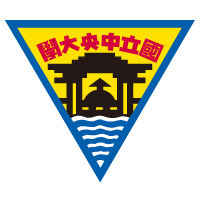Sediment Biogeochemistry Research Group
Research Field
Dr. Pei-Chuan Chuang is currently an assistant professor in the Department of Earth Sciences at National Central University. Her expertise lies in the field of marine sediment biogeochemistry, encompassing field sampling during research cruises, chemical composition analysis of solid phases, gases, and pore waters in sediments, as well as numerical modeling (reaction-transport modeling). Her research experience includes:
- Investigating natural gas hydrates in the southwestern waters of Taiwan.
- Using numerical modeling to study the sediment geochemical processes in the Benguela upwelling system (Namibia), exploring the relationship between ocean upwelling regions, seawater dissolved oxygen concentration changes, and sediment biogeochemistry under global environmental change.
- Quantifying methane production mechanisms and fluxes in mangrove ecosystems along the coast of Mexico and examining their relationship with other microbially-driven biogeochemical processes.
- Using numerical modeling to investigate the dynamics of dissolved organic carbon and the cycling of iron and sulfur in Black Sea sediments, as well as changes in these processes since the Holocene.
Her research contributes significantly to understanding global natural resources, climate change, and the deep biosphere of the Earth, all of which are intricately linked to the global carbon cycle.
The main research focus of Sediment Biogeochemistry Lab is "The carbon cycle in sediments and the interactions of various elemental cycles with Earth's different spheres," with an emphasis on exploring the storage and transformation processes of carbon in sediments and sedimentary rocks. Research methods include:
(1) Collecting sediment core samples during field expeditions.
(2) Analyzing the chemical composition of sediments using laboratory instruments.
(3) Measuring and modeling changes in chemical species/reactions with depth.
(4) Applying sediment diagenetic model to study chemical reaction rates and element transport in sediments.
The research areas include diverse environments such as wetlands, river deltas, mangroves, continental margin sedimentary settings, permafrost, and hypersaline lakes. Particular attention is given to the regional differences in organic carbon distribution in marine sediments, especially the high carbon storage potential of continental margin environments.
Applications and scientific questions addressed include:
- The formation and decomposition rates of natural gas hydrates
- The relationship between carbon burial rates in wetland sediments and greenhouse gas emissions
- The impact of sea-level rise in ancient marine environments on sulfur and carbon cycles
- The dynamics of carbon release from polar waters and sediments under global warming
- The relationships between the carbon cycle and elemental cycles in various sedimentary environments
Geochemical modeling: early diagenesis transport-reaction model
Sediment geochemistry
Porewater geochemistry
Gas geochemistry
Carbon dynamics and cycling
Source and sink of methane in gas hydrate study area and tropical and high latitude wetland settings
2023 The Yushan Fellow Program-Global Outstanding Talent award, Ministry of Education (MOE)
08.2006 ~ 01.2012 Ph.D. Geosciences
Department of Geosciences, National Taiwan University, Taipei, Taiwan
Advisor: Dr. Tsanyao Frank Yang
Doctoral thesis: Porewater geochemistry study and numerical simulation
of cored sediments in gas hydrate potential area offshore SW Taiwan
10.2010 ~ 10.2011 Visiting Ph.D. student
Leibniz-Institute of Marine Science (IFM-GEOMAR), Kiel, Germany
Advisor: Dr. Andrew Dale; Dr. Klaus Wallmann
09.2004 ~ 07.2006 M.Sc. Geosciences
Department of Geosciences, National Taiwan University, Taipei, Taiwan
Advisor: Dr. Tsanyao Frank Yang
Master thesis: Gas geochemistry study in gas hydrate potential area
offshore SW Taiwan
09.2000 ~ 06.2004 B.Sc. Earth Sciences
Department of Earth Sciences, National Cheng Kung University, Tainan, Taiwan
B.Sc. Chemistry
Department of Chemistry, National Cheng Kung University, Tainan, Taiwan
2 Vacancies
Job Description
- Conduct fieldwork for soil gas sampling.
- Analyze soil gas composition.
- Integrate geochemical data to identify the occurrences of natural hydrogen and their connections to Taiwan's geological settings.
Preferred Intern Education Level
Postgraduate students with a background in geology, geochemistry, earth sciences, or environmental science.
Skill sets or Qualities
Priority will be given to applicants with any of the following skills:
- Experience in soil gas sampling.
- Proficiency in gas chromatography (GC) analysis.
- Experience in geological fieldwork.
